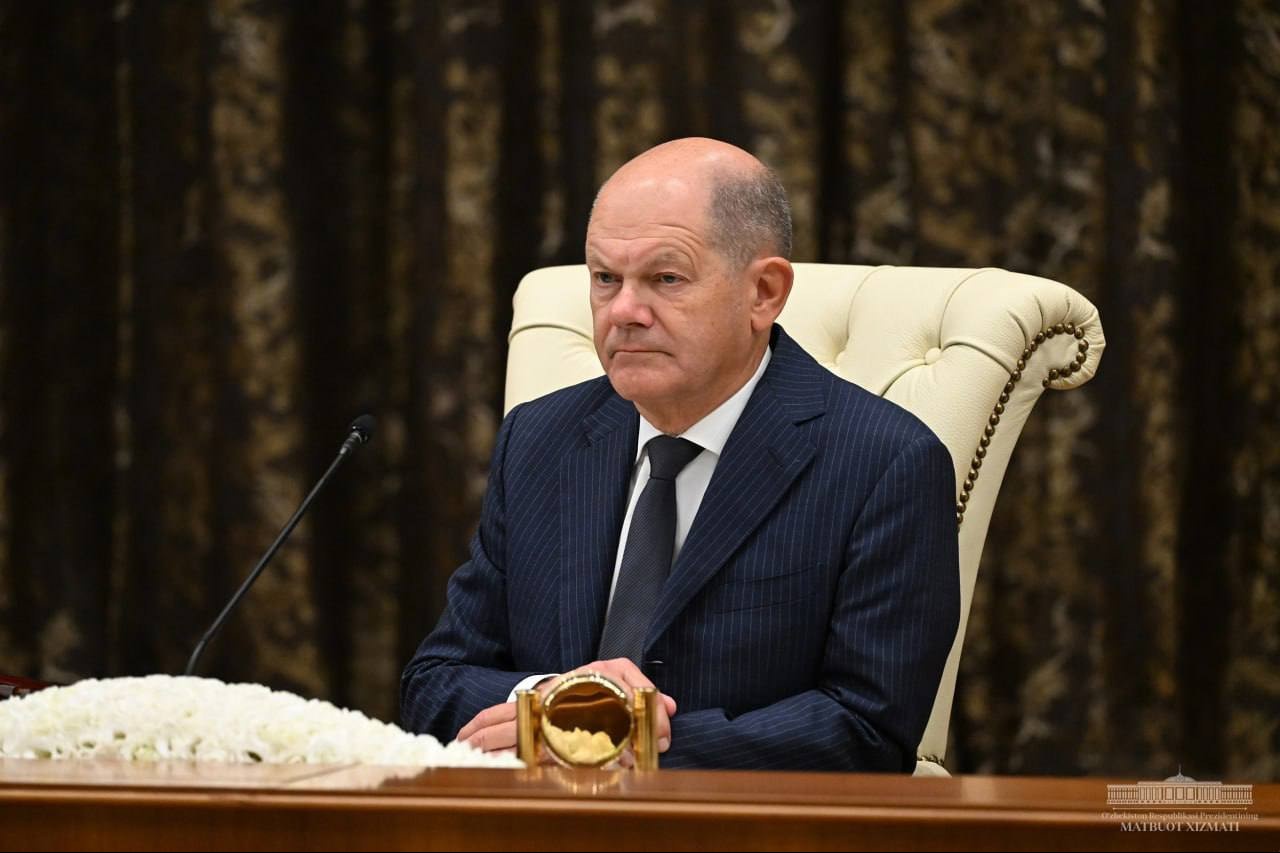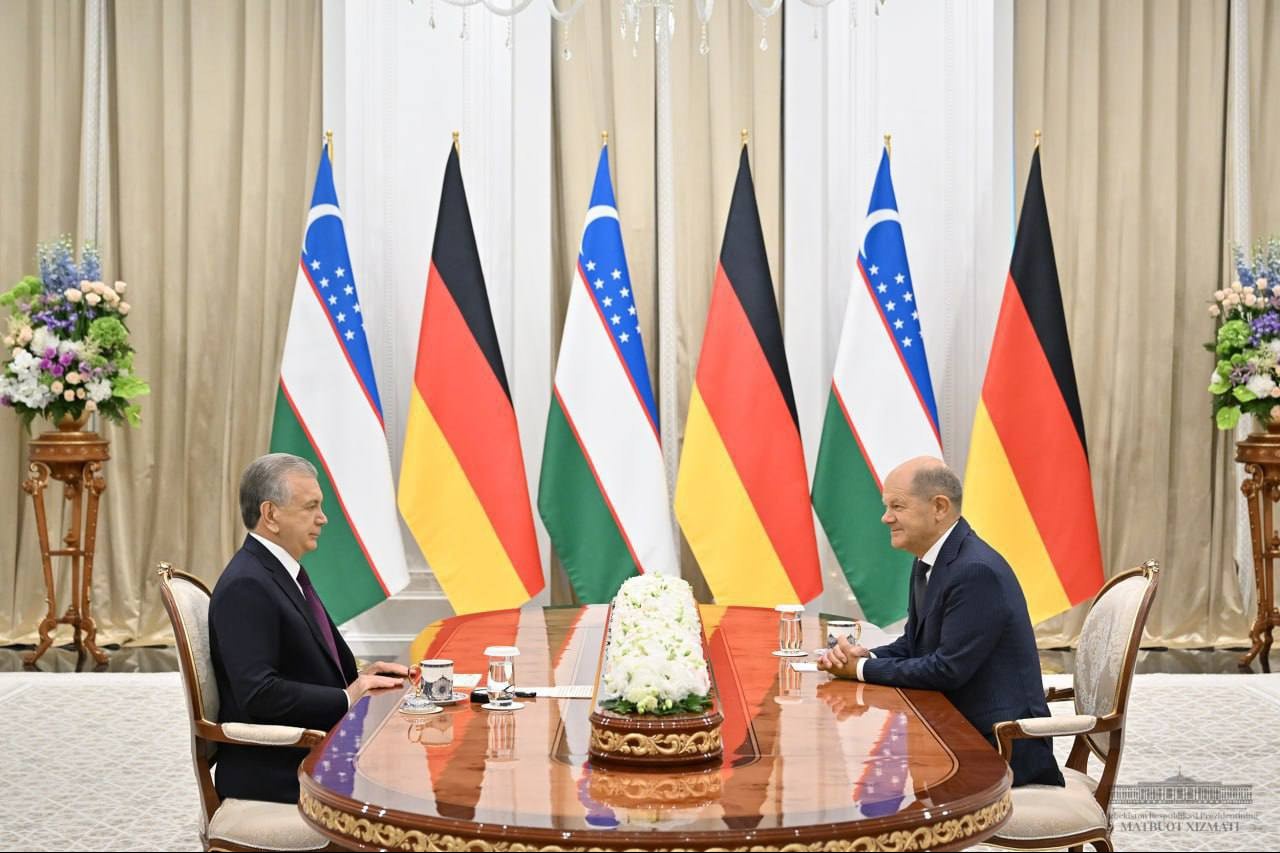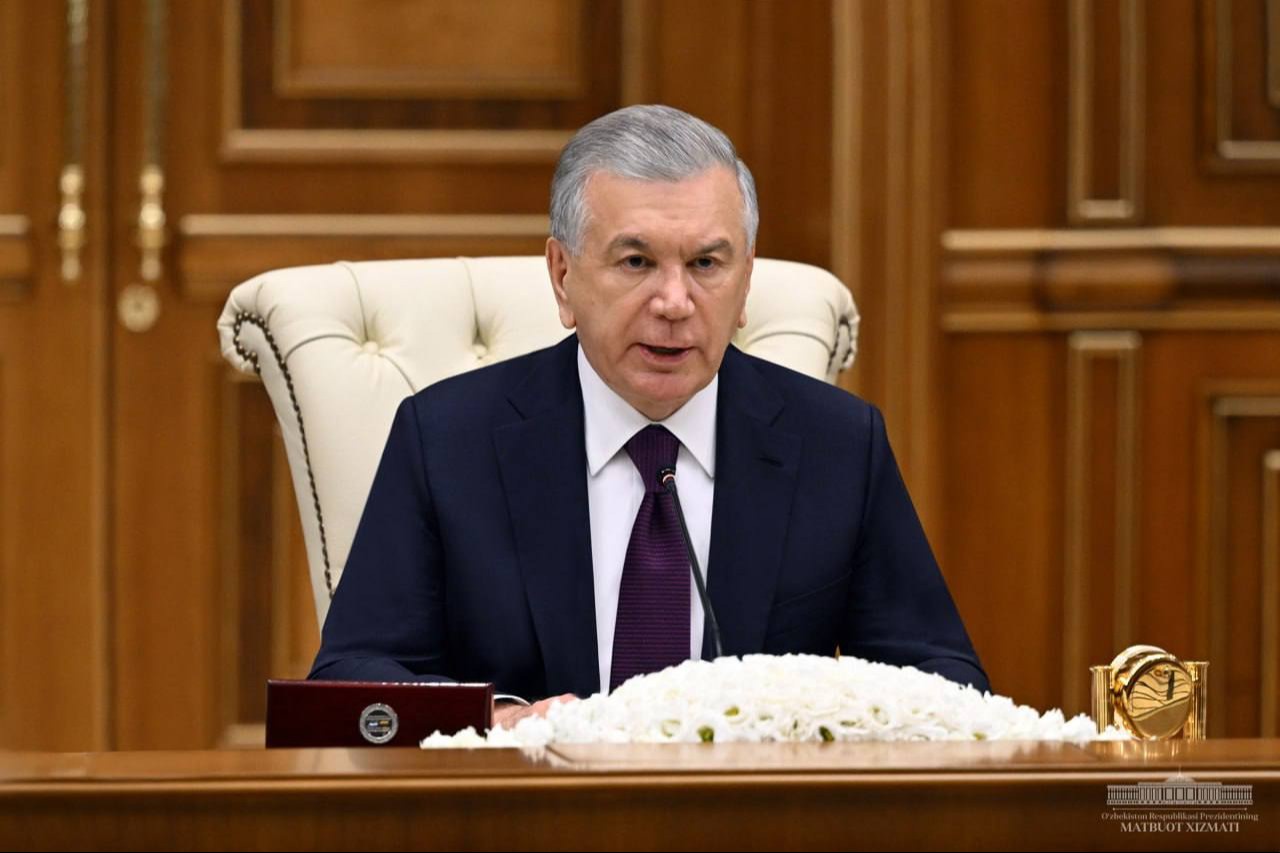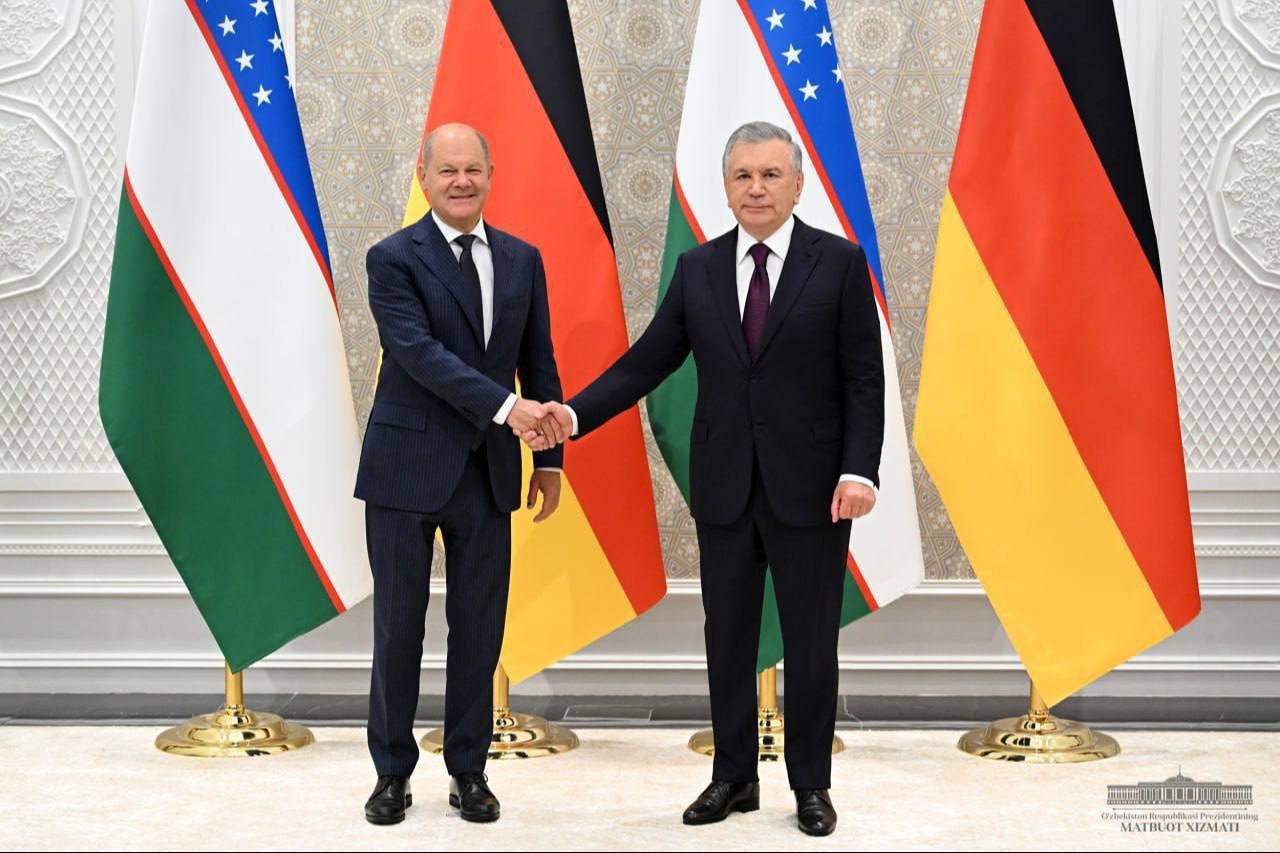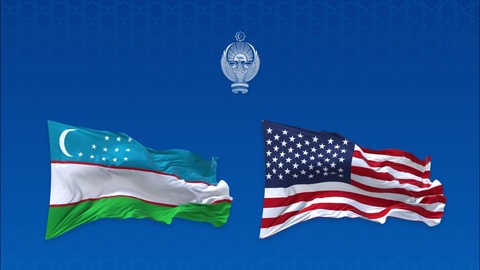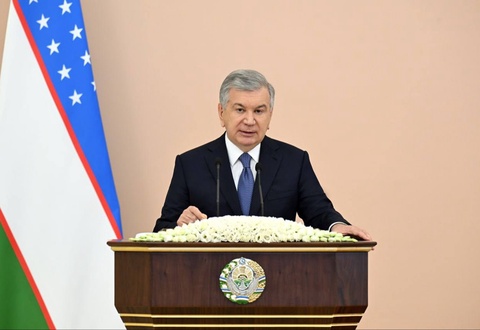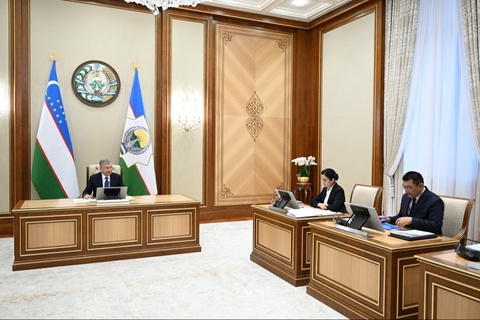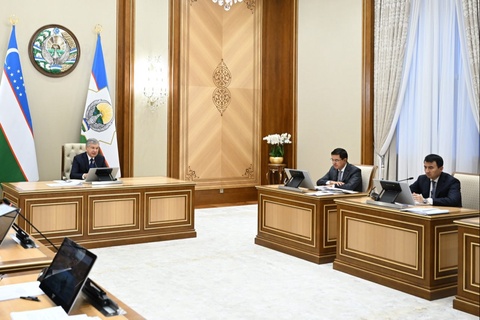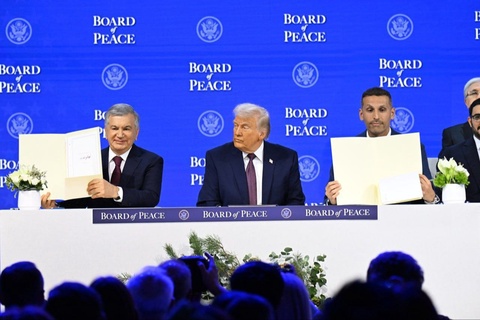The Leader of Uzbekistan noted the historical significance of the Federal Chancellor’s visit to Uzbekistan.
“We consider this as a confirmation of your special attention to the further development of multifaceted relations between Uzbekistan and Germany and support for irreversible reforms in New Uzbekistan”, Shavkat Mirziyoyev emphasized.
The President of Uzbekistan sincerely congratulated the guests on the 75th anniversary of the founding of the Federal Republic of Germany and the upcoming German Unity Day.
During the talks, issues of further enhancing multifaceted relations between Uzbekistan and Germany were discussed.
It was emphasized that last year’s summit meetings in Berlin gave a serious impetus to developing practical cooperation between the two countries.
Contacts at all levels have intensified. Last year, trade turnover exceeded 1 billion euros. Cooperation with German business is expanding. Since the beginning of the year, German companies have invested 800 million euros in Uzbekistan’s economy.
In June, the eighth Uzbekistan – Germany Business Council meeting was successfully held in Tashkent.
The financial and technical assistance projects through the KfW bank and the German Society for International Cooperation were highly praised.
It was emphasized that an important cultural event was the holding of an exhibition of the cultural heritage of Uzbekistan in the New Museum of Berlin last year, which was visited by over half a million residents and guests of the capital of Germany.
The opening of the Avicenna and Heinrich Schipperges School of Medical Sciences in Samarkand this summer was also noted with satisfaction.
The parties spoke in favor of continuing active contacts between parliaments, governments, and foreign ministries.
The foreign policy agencies were instructed to consider raising the level of relations between Uzbekistan and Germany and hold regular consultations on international and regional issues, including the situation in Afghanistan.
Active interaction will continue within the United Nations, the OSCE, the institutions of the European Union, and other multilateral structures.
It was noted that a strategic Industrial and Technological Partnership Program has been prepared for the current summit. Cooperation projects worth about 9 billion euros are being developed with leading German companies and banks.
They cover such areas as green energy, the chemical industry, the development of critical materials, mechanical engineering, the textile industry, the production of building materials, and many others.
Among the most significant projects are the construction of combined-cycle power plants in the regions of Uzbekistan with Siemens Energy, the Methanol Island and the production of green ammonia with Linde Group, the development of a large copper deposit with the participation of KfW Ipex-Bank, copper mining and cable production with Giga Fiber, the production of carbon fiber with AMK Global, black carbon and hydrogen with Guesscon and many others.
Several new projects are underway to localize pumping systems, develop renewable energy, produce medical products, and create logistics centers.
An agreement was reached to accelerate and support these projects and to introduce practical tools to stimulate investment.
The importance of the agreements signed during the visit on cooperation in the critical raw materials and climate change was emphasized.
Interest was expressed in Uzbekistan’s participation in the Climate Club, which was created at the German Government’s initiative.
Particular attention was paid to transport and logistics issues, the development of a system of efficient land and air routes, and the reduction of transport costs.
The Leader of Uzbekistan also proposed to consider the issue of resuming direct flights of Lufthansa to Uzbekistan.
The importance of expanding partnerships between the regions of Uzbekistan and Germany was emphasized. Since the beginning of the year, representatives of two federal states of Germany have visited Uzbekistan. Visits by delegations from Berlin, Bavaria, and Thuringia are expected by the end of the year.
The signing of the Agreement on Labor Migration during the current visit, which aims to organize transparent and systemic cooperation in this area, was noted with satisfaction.
It was proposed to develop a roadmap for practical interaction in training and sending sought-after Uzbekistan specialists to Germany at the level of responsible departments.
Interest was expressed in the widespread introduction of the German model of dual education in the regions of Uzbekistan. To develop educational and scientific exchange between leading universities, a Forum of Universities of the two countries was proposed.
The Uzbek side expressed its readiness to create all conditions for implementing joint programs and opening faculties and branches of higher education institutions in Germany.
It was noted that a joint School for training management personnel will be launched during the visit.
The President of Uzbekistan emphasized the high interest of Uzbekistan’s youth in the German language, which is studied by almost 300,000 young people. The recent victory of a schoolgirl from Andijan, Rayona Ibragimova, at the World Olympiad in German language was cited as an example.
The German side expressed its readiness to facilitate the expansion of language learning and teacher training programs in Uzbekistan’s regions.
It was proposed to resume the work of the Joint Commission on Cultural Cooperation.
Following the meeting, an agreement was reached on preparing and adopting a joint roadmap for implementing the decisions taken and the agreements signed.


